Louth parklets: The town in turmoil over street seats
- Published
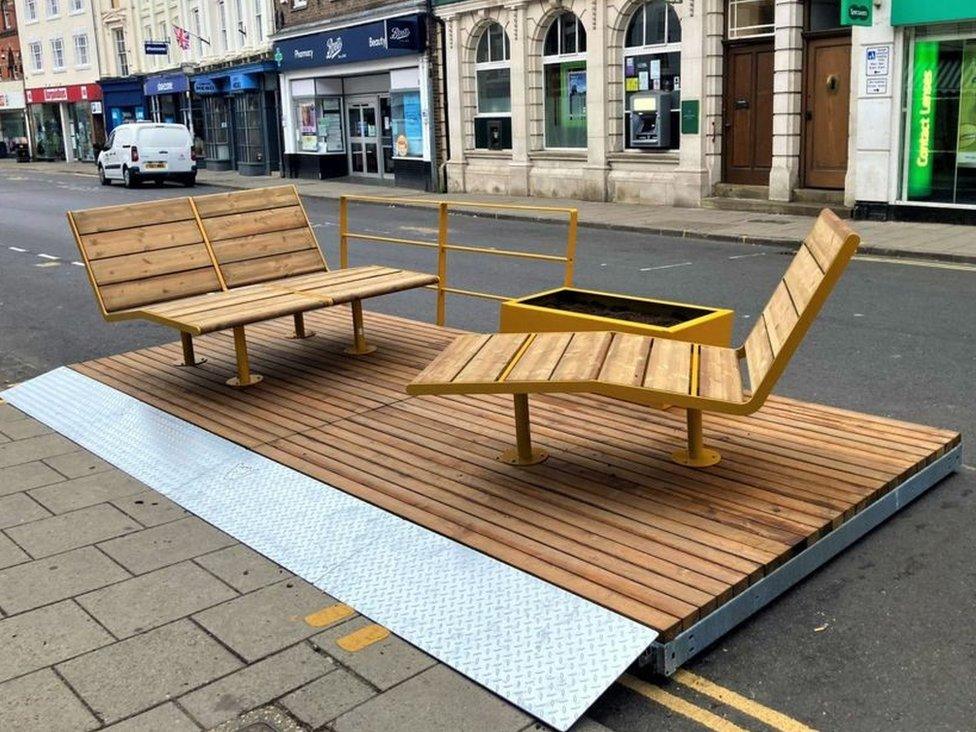
One of two parklets in Mercer Row, Louth, before they were taken away
The small Lincolnshire market town of Louth is an unlikely location for a civic revolt. However, the installation of wooden "parklet" seating areas on the town's busy Mercer Row appears to have lit the blue touch paper on a spate of vandalism and discontent. BBC News' Kevin Shoesmith went to find out the word on the street.
Few in Louth call them "parklets".
Most refer to them as "the skips" - and not just because they are painted yellow, they tell me.
Straight away, Helen Grant, owner of H & J Arts and Crafts, in Mercer Row, fires a warning shot at the council.
"If they put these skips back, they'll be vandalised again," she says. "They'd be stupid to.
"There is that much hatred for them."
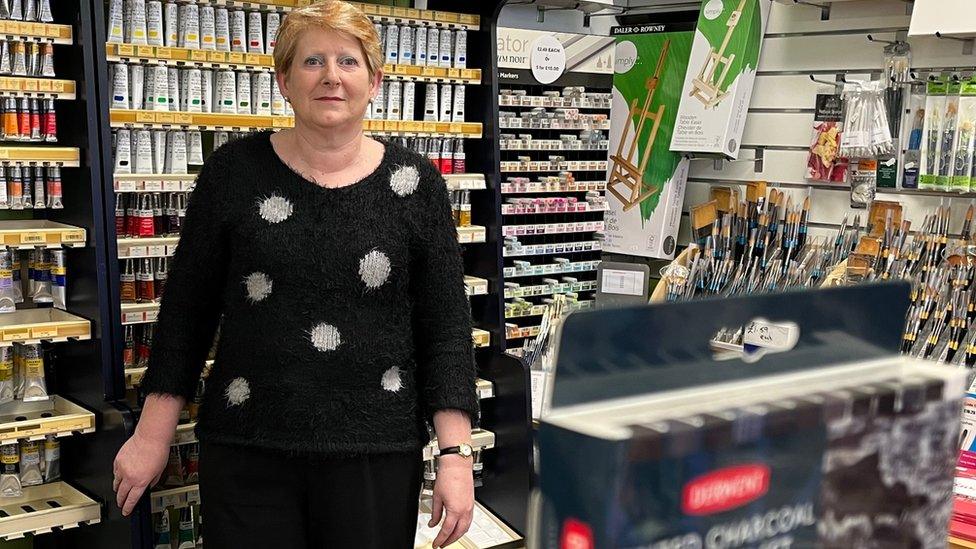
Craft shop owner Helen Grant hopes she has seen the back of the parklets
Lincolnshire County Council paid £62,000 for four parklets, although only two were installed back in August.
Vandals have daubed anti-parklets graffiti across the road, while the benches themselves have been damaged.
CCTV even reportedly captured one disgruntled resident picking up one and placing it in a side street.
In light of the attacks, Lincolnshire County Council removed the parklets earlier this week.
The palpable sense of anger seems out of keeping for this pretty market town on the edge of the Lincolnshire Wolds.
However, traders argue it is the parklets that are out of keeping with Louth.
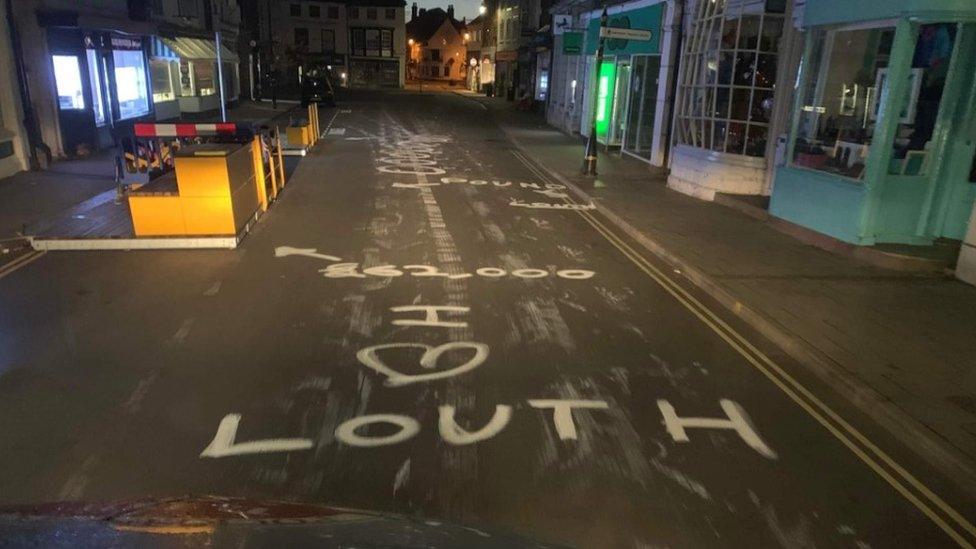
The street was daubed with messages about the cost and impact of the controversial seating
Ms Grant is not finished yet.
"I'm so pleased they've gone," she says. "They were absolutely hideous. I'm not surprised at all that they were vandalised.
"I had one of them right in front of the shop - it was bright yellow, horrendous. It covered my two windows and door."
But what is really behind the anger, I ask.
"This is a unique town," explains Ms Grant. "Now we are the laughing stock of the country."
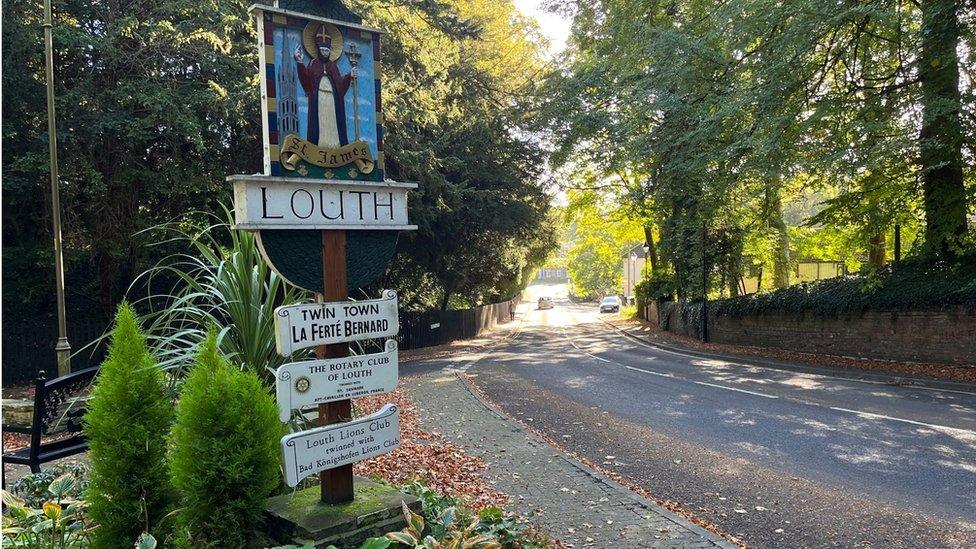
Traders say the parklets are not in keeping with the market town
Like others traders on the Georgian shopping street, Ms Grant says she has put her heart and soul into her business, and claims the parklets, as well as being a blot on the area, have impacted on trade.
"Before they were put in, we had 30-minute parking bays all along here," she says. "People could park up and pop in.
"A lot of elderly and disabled people do crafts. It gives them something to do. They can't walk from the car parks.
"Just as we're getting back on our feet from Covid, they do this to us."
Ms Grant accuses the council of failing to consult with businesses prior to the parklets being installed.
"It's like they did this through the back door," she says.
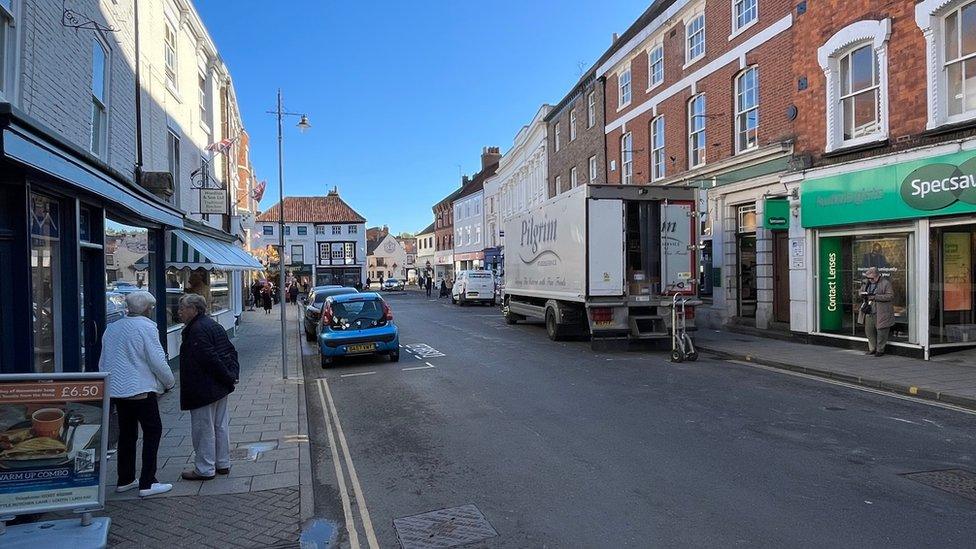
The parklets have gone - for now - after a spate of vandalism
A few doors away, John Woolliss, owner of Woolliss & Son butcher, tells me "90% of people" in the town oppose the parklets.
"A lot of our trade came from people using the 30-minute parking bays outside the shop," he says.
"You're not going to walk a long distance to get a half pound of sausages, are you?"
His staff collected about 1,400 names on a petition calling for the parklets to go, Mr Woolliss says.
Asked what is wrong with the parklets themselves, Mr Woolliss replies: "They're skip-coloured. They're hideous."
He says the parklets are "completely out of place".
"This is a traditional market town and we want to keep it that way," he says.
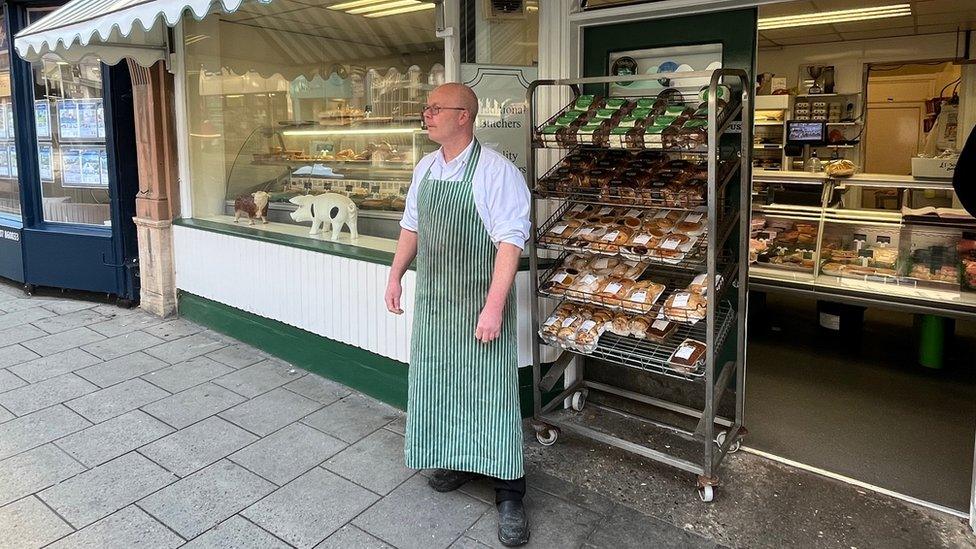
Butcher John Woolliss believes there are better places for outdoor seating
Mr Woolliss is angry there was not what he calls a "proper consultation".
"Had there been, people could have put across their ideas," he says. "Why couldn't we have had a few extra tables and benches around the corner in Market Place?
"They could have been out from April to October when people actually want to sit outside. The rest of the year it could be used for parking."
The parklets have caused division in one family.
Jedrock Coulson, 32, is all for them, whilst sister Ulrika Robinson, 30, is firmly against.
"I think they're a good idea," says Mr Coulson, a property developer. "They give people the chance to stop and have a break. The kids seemed to love them."
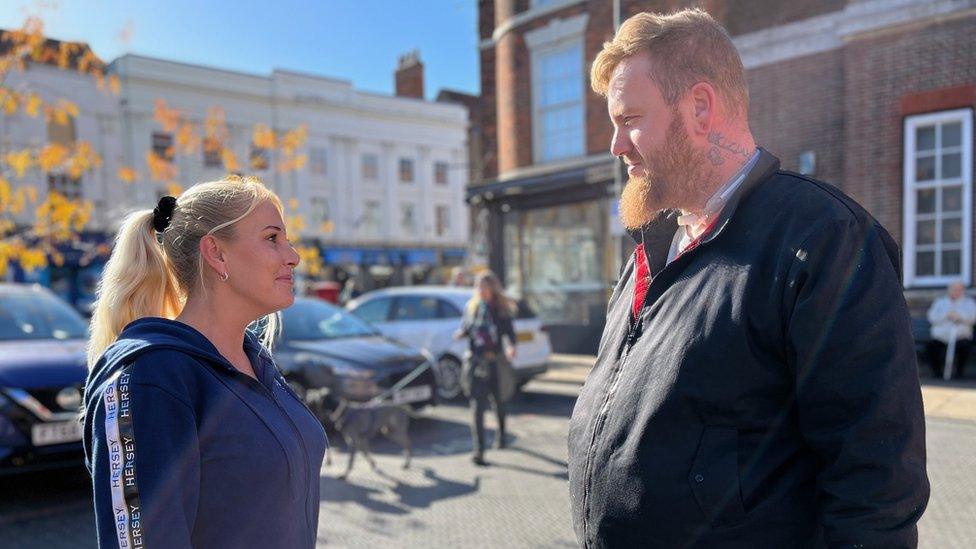
Siblings Ulrika Robinson and Jedrock Coulson have differing views on parklets
Mr Coulson dismisses the public backlash.
"People want something to moan about," he says.
He is stopped in his tracks by his sister.
"Why didn't the council put them in Market Place," she queries. "Instead of making people pay 40p to use the toilet, why not put some money into free public toilets?"
In their defence, the money for the parklets came from the government's Active Travel Fund.
Designed to encourage people to move away from car usage, the funding came with restrictions, the authority says.
"It's all taxpayers' money though," rebukes Ms Robinson.
The mother-of-two also raises safety concerns about the positioning of the seating.
"They were dangerous," she says. "Children could easily have fallen off them and into the road."
A short walk away, in the calm surroundings of the 15th Century St James's Church, I find verger Dale Walker.
He believes the parklets are "a bit ridiculous", adding that they are "in a silly place".
Furthermore, he says they "do not fit in with a Georgian town".
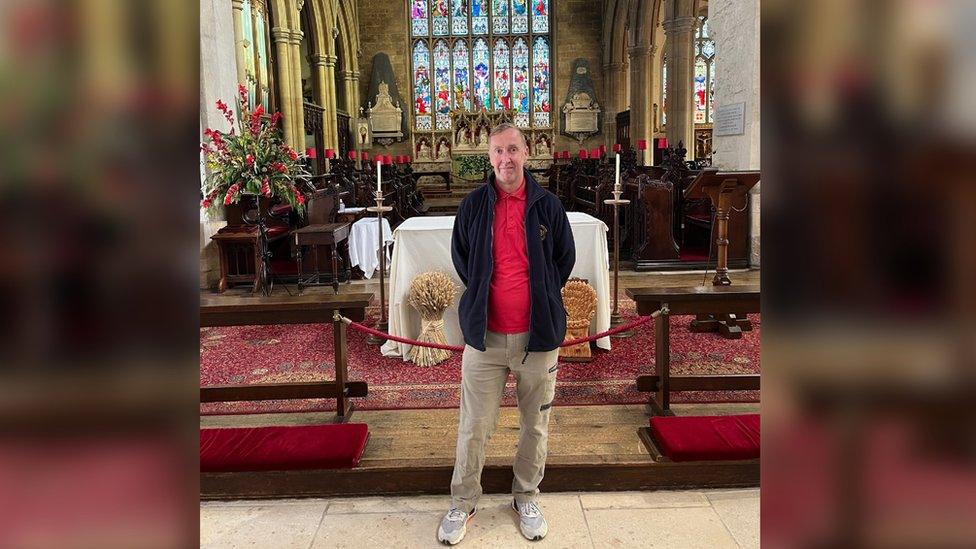
Dale Walker, verger of St James's Church, Louth
Lincolnshire County Council has told the BBC its intention was always to install the first two parklets, before gaining feedback and discussing on 25 October where the others should be placed with highway bosses.
The authority confirmed there had been four separate incidents of vandalism, with councillor Richard Davies, executive member for highways, describing it as "a terrible way to behave".
Mr Davies accused those responsible for the vandalism of drawing "the reputation of Louth publicly downwards".
A spokesman for the council said the £62,000 was granted to the authority "on the strict provision" that it could only be used for an Active Travel Schemes, designed to encourage people to ditch their cars.
"We cannot shift these funds in part, or divert them in full, to areas that we fully acknowledge are in need of more cash," he said.
"If we do not pursue and try Active Travel Schemes in our county then we could, in the future, see a further cut to our road maintenance funds by government."
Back in St James's, the verger tells me: "There are some people for the parklets.
"But they're few and far between."

Follow BBC East Yorkshire and Lincolnshire on Facebook, external, Twitter, external, and Instagram, external. Send your story ideas to yorkslincs.news@bbc.co.uk, external.
Related topics
- Published11 October 2022
